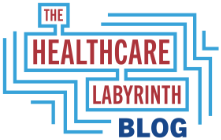MA plans may cheer the delay on supplemental benefits notifications, but it could work against them over time
The Centers for Medicare & Medicare Services (CMS) announced in a short notice published in the Health Plan Management System (HPMS) that it is delaying enforcement of Medicare Advantage (MA) supplemental benefits notification requirements. It says it will reconsider the regulatory requirements.
Background on recent reforms
In light of the ongoing controversy over the surge of rebates in the rate-setting program and the inability to determine how much of the extra dollars are truly spent on added benefits, CMS instituted two key reforms.
First, it clarified ambiguity about whether supplemental benefits must be submitted as encounter data. It now requires all benefit utilization to be submitted as such. This has led to a very complicated directive from CMS to MA plans on how to submit such data. Many supplemental benefits are not health-related or cannot be reported cleanly as medical services can (e.g., while some supplemental benefits like dental can be easily submitted in HIPAA formats, some benefits do not match traditional encounter structures, do not have procedure codes, etc.).
This means CMS must advise plans on how to submit, including whether per utilization or on some different transactional basis. The fact is that while the dictate is moving along, the pace is slow and compliance has been difficult. CMS and plans are mastering the easier stuff first, such as dental encounter submission. But even that has gotten complicated.
Second, a recent rule also directed plans to engage in minimum outreach efforts so that enrollees are aware of the supplemental benefits available to them. The rule prevents misleading marketing related to supplemental benefits. The rule makes it a violation to feature benefits that are subset to given populations as available to everyone in the plan. These provisions stay in force.
What was delayed indefinitely?
What was stayed was the issuance of a “Mid-Year Enrollee Notification of Unused Supplemental Benefits” annually, personalized to each enrollee, which includes a list of any supplemental benefits not accessed during the first six months of the year. In addition, the notification must include the scope of the benefit, any cost-sharing required, and network or restrictions, how to access the benefit, and a customer service line if additional help is needed.
Of course, this provision was the key one meant to boost access to and utilization of these supplemental benefits. The notifications were to go out to enrollees between June 30th and July 31st, beginning January 1, 2026.
The memo says that after numerous implementation questions and requests for technical guidance from MA plans CMS determined that a temporary enforcement pause is necessary to address logistical concerns and reevaluate current requirements. MA plans may voluntarily provide these notices if they choose.
What do studies show on supplemental benefit usage?
MA rebates have grown considerably and therefore supplemental benefits have proliferated. In part his was due to liberalization by CMS about what could be offered as a benefit in MA. But based on limited data, the utilization of many of these benefits is very low.
Over the years, numerous groups have documented in analyses that no one is quite sure how much of the rebates are actually spent on supplemental benefits. A January 2023 Government Accountability Office (GAO) report below is a worthy read. I would note that there has been some benefit erosion since the study was published because of MA contraction in 2025 and to a lesser degree in 2024. But it points out:
- The various types of supplemental benefits.
- Notes that spending on such benefits by plan varies greatly.
- States that little is known on spending due to the lack of encounter data submission.
- Finds that there is no way right now to accurately tie back bid information on such benefits to actual utilization.
GAO recommended that CMS clarify that supplemental benefit utilization must be submitted as encounter data and that it should have clear directions on how to do so given how different many are from traditional health benefits.
Similarly, in its March 2024 “Report to the Congress: Medicare Payment Policy,” MedPAC, the congressional Medicare policy advisor, took MA plans to task on supplemental benefits. Like the GAO, MedPAC cited major dollars allocated to the benefits and little way to analyze the value actually provided.
Conclusion
After significant scrutiny, CMS did respond to criticism on supplemental benefits’ accountability by enacting a number of reforms. But getting encounter data reporting online has been slow and now the main marketing and education component is on hold. MA plans may be celebrating that the major administrative burden has been lifted, but this very much could work against MA plans on Capitol Hill. The lack of transparent data and rising utilization of these benefits could spark changes that are even less MA friendly. The MA overpayment debate continues and now defenders cannot even point to strong reforms being rolled out.
MA plans may need to find their own ways to drive supplemental benefit education and utilization. Supplemental benefits are one of the great value differentiators between MA and the traditional program. They could be even more so if utilization is driven to appropriate levels and care and quality increase.
#supplementalbenefits #medicareadvantage #overpayments #riskadjustment
— Marc S. Ryan





